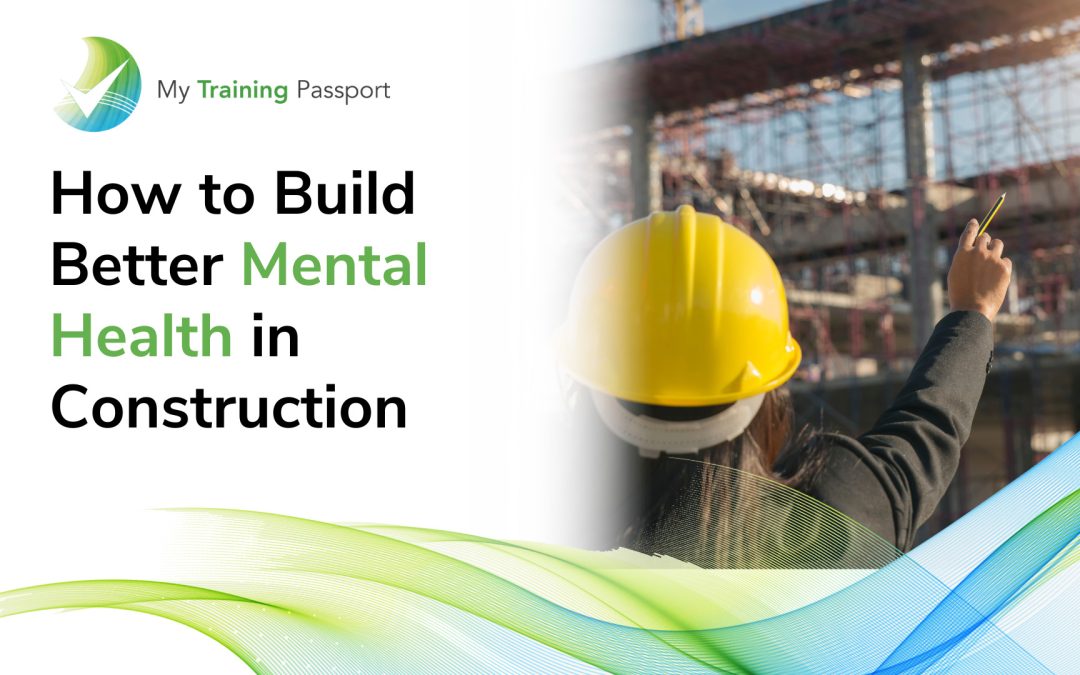Did you know that 82% of builders in the UK suffer mental health problems due to work-related issues?
According to the study by IronmongeryDirect and ElectricalDirect, 73% of UK builders experience mental health problems every month, and 45% feel symptoms every week.
Male-dominated industries, such as construction, often have employees who are less willing and able to open up about their mental health and ask for support. When left untreated, however, mental health problems worsen, which is why we must build better mental health in construction.
Whether you’re a construction employer or employee, we’ve compiled a useful mental health guide of ten places to find advice, help and support.
10 places to find mental health advice, help and support
There are several reasons why construction employees experience such high levels of mental health issues, including heavy workloads, periods of working away from home, long working hours, job insecurity, late payments, and poor management practices.
Whatever your reason for experiencing mental health problems, the important thing to remember is that support is available for you. Here are some places you can find mental health advice, help and support:
1. Construction Industry Helpline
Offering free support for all construction workers and their families, Construction Industry Helpline provides 24/7, free and confidential support services for emotional, physical and financial well-being.
Construction Industry Helpline, which Lighthouse Construction Industry Charity runs, has a helpline and text services available for anyone who needs advice, help or support.
On the website, you can also learn more about Construction Industry Helpline’s self-support app, mental health training courses, learning resources and helpful information about wellbeing.
2. NHS
The NHS offers many mental health services.
If your mental health problem is an emergency, for example, if you or someone else is in danger, call 999 immediately.
If you or someone else needs urgent help for mental health problems but it’s not an emergency, call 111 or visit 111 online.
Alternatively, you can find local NHS urgent mental health helplines in England. These helplines offer 24-hour advice and support, help speaking to a mental health professional and assessments to find the care you need.
You can also visit your GP doctor for advice, help and mental health support or find NHS talking therapies.
3. National Suicide Prevention Helpline
National Suicide Prevention Helpline is a helpline that provides a supportive listening service to anyone with suicidal thoughts.
The helpline is open daily from 6 pm to midnight on 0800 689 5652. Anybody who needs to talk is welcome to call the helpline, which is a confidential service for those aged 18 or over.
4. Samaritans
Available 24 hours a day, 365 days a year, Samaritans is a charity helpline that anyone can call if they’re struggling to cope. The charity offers non-judgemental listening and support to people experiencing mental health problems.
You can also manage your mental health symptoms with the Samaritans’ Self Help app, which helps you track your mood, create a safety plan, try techniques, and keep track of useful activities.
5. Mind
Mind offers help through mental health information and advice. On Mind’s website, you’ll find practical tips, advice and help for all types of mental health problems, including anxiety, depression and financial worries.
Mind helpline is available Monday to Friday (except on bank holidays) from 9 am to 6 pm on 0300 123 3393.
You can also find local services via Local Minds, which provides mental health services in local communities across England and Wales or connect with others experiencing mental health problems via Mind’s online peer support community, Side by Side.
6. Campaign Against Living Miserably (CALM)
With a helpline (0800 58 58 58) and an online chat, Campaign Against Living Miserably (CALM) offers a free, confidential talking service for anyone who is experiencing mental health problems or who is feeling suicidal.
Both the helpline and webchat are available from 5 pm to midnight, 365 days a year. You can also find an abundance of information and advice on the CALM website.
7. Mates in Mind
Mates in Mind is a charity that provides clear information to employers about the available support and guidance on mental health and well-being and how they can address this within their organisations.
The charity also has mental health resources on its website and Be a Mate text service for individuals seeking support. Trained volunteers can help with issues such as anxiety, stress, loneliness or depression 24/7.
8. Shout
Another texting mental health service is Shout, which provides mental health support daily for those needing help in the UK.
The service is free and confidential – to talk to somebody now, simply text ‘SHOUT’ to 85258.
9. Building Mental Health
Building Mental Health was founded to address the industry’s mental health crisis to provide support and advice to increase mental health awareness.
Ran by volunteers who are industry experts, Building Mental Health offers a range of resources, including a framework, an adaptable Tool Box Talk, helpline packs and Mental Health First Aid training courses.
Building Mental Health is ideal for companies who want to improve the mental health culture and look after their employees, but it also has some helpful resources for those experiencing mental health problems.
10. Mental Health At Work
Mental Health At Work is another helpful website for employers and HR employees to find workplace support and advice for mental health.
The website is full of tools, resources and stories to help you navigate the mental health landscape and find the best ways to support your employees.
Find the mental health advice, help and support you need
As you can see, there are plenty of mental health helplines, advice, support and information; if you are struggling with your mental health, please reach out to one of the above resources.
Remember, there’s no shame in experiencing mental health problems, and the sooner you find the advice, help or support you need, the quicker you can feel like you again.

